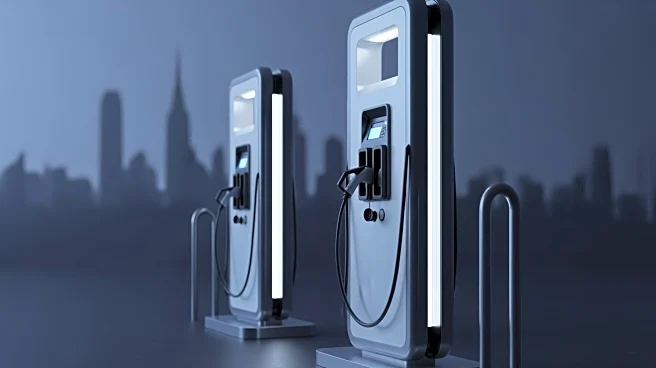What's Happening?
The recent termination of the federal electric vehicle (EV) tax credit in October 2025 has led to a significant decline in U.S. EV sales. Hyundai's Ioniq 5 experienced a sales drop of over 60% compared
to the previous year, although its total sales for 2025 remain up by nearly 25%. The Ioniq 6 saw a 52% decrease in October sales, with a 4% decline for the year. Kia's EV6 sales fell by two-thirds compared to last October, and Honda's Prologue sales plummeted by 80%. The end of the tax credit, which had previously boosted sales, has left demand depressed, with automakers now shifting focus back to internal combustion engine vehicles.
Why It's Important?
The decline in EV sales following the end of the tax credit highlights the significant impact of government incentives on consumer purchasing behavior. The drop in sales could hinder the Biden administration's goal of installing 500,000 public chargers by 2030, as reduced private sector investment may follow the decreased demand. Automakers may face financial challenges as they adjust to the new market conditions, potentially affecting their long-term strategies and investments in electric vehicle technology. The situation underscores the importance of policy support in driving the transition to sustainable transportation.
What's Next?
As the market adjusts to the absence of the federal tax credit, automakers may explore alternative strategies to stimulate EV sales, such as introducing new incentives or focusing on cost reductions. The industry will likely monitor consumer response closely and may advocate for renewed government support to bolster the EV market. Additionally, the upcoming release of Q4 and full-year sales data in January will provide a clearer picture of the industry's trajectory and inform future policy and business decisions.









